The French tanks deployed over the last three years by the United Arab Emirates in the Yemen, in a war which has already led to 10,000 deaths, most of them civilians, hide a deep secret.
It is a state secret that goes back a quarter of a century.
Its revelation today shines a light on an unprecedented admission of state corruption involving a French government arms company which paid 200 million dollars of black money into bank accounts based in tax havens, according to documents obtained by Wikileaks and shared with Mediapart, German publication Der Spiegel and Italy's La Repubblica, and authenticated by an independent investigation.
These documents offer a rare glimpse into the secrets of one of the largest arms deals signed by France, which is today the third largest exporter of arms in the world.
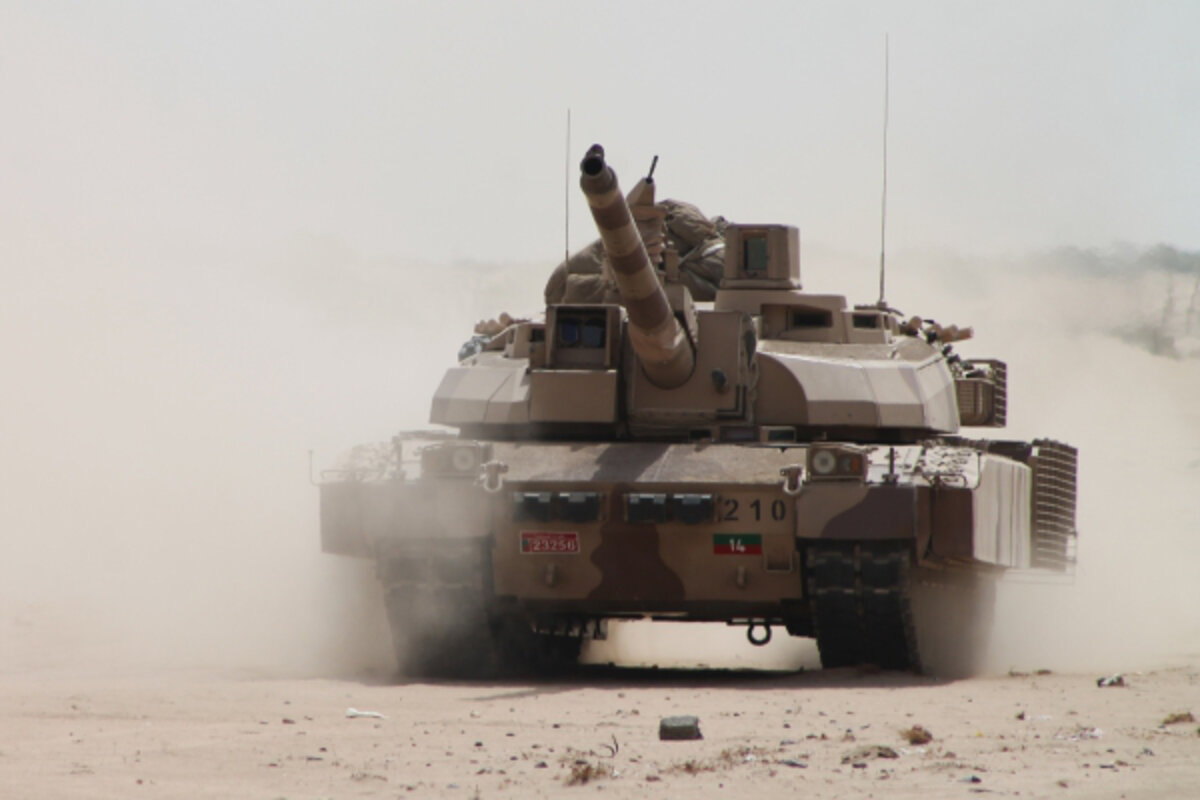
Enlargement : Illustration 1

The Leclerc battle tanks sold by France to the United Arab Emirates (UAE) at the beginning of the 1990s were made by Groupement Industriel des Armements Terrestres (GIAT), now known as Nexter, in which the French state had a 100% stake. The delivery of the tanks began in the early 2000s but were only used in combat for the first time in 2015 at the start of the war in Yemen, as stated on several specialist websites (see for example here and here).
The ongoing conflict in Yemen has been between Houthi rebels supported by Iran and a coalition led by Saudi Arabia and the UAE seeking to shore up the regime of President Abdrabbuh Mansour Hadi. According to the United Nations the coalition, armed by France in particular, has “caused most direct civilian casualties”. The UN also fears war crimes may have been committed and points out that air strikes have hit “residential areas, markets ... weddings...and even medical facilities”. According to the non-governmental organisation Save The Children more than five million children in Yemen are under risk of famine because of the war. The UN says the conflict has led to the worst humanitarian criss in the world.
At the time, the sale of the Leclerc tanks to the UAE was described in the French press as the “deal of the century”. With some justification, as the contract, signed on April 6th, 1993, one week after conservative prime minster Édouard Balladur formed a government under socialist president François Mitterrand, involved the delivery of 388 tanks, 46 armoured vehicles and ammunition. The total value was 3.6 billion dollars though this was later reduced slightly to 3.2 billion dollars.
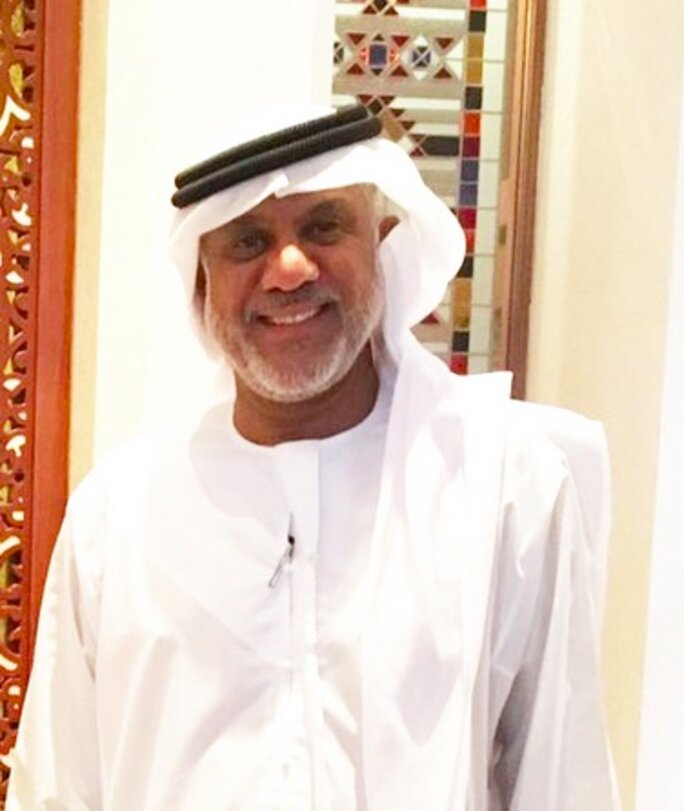
However, the secret negotiations behind the deal had begun two years earlier, according to the documents acquired by Wikileaks. Back in January 1991 the French government under socialist prime minister Michel Rocard had, via state defence firm GIAT, commissioned an emissary with very good connections in Abu Dhabi. His name was Abbas Ibrahim Yousef Al Yousef.
Al Yousef, who comes from the same village as Zayed bin Sultan Al Nahyan, the man behind the creation of the UAE and its president from 1971 to 2004, started his career as a fighter pilot. He married a woman living in Saudi Arabia and his two children have been educated in the United States. His main claim to fame in the UAE air force was as flying instructor to Mohammed bin Zayed Al Nahyan, the crown prince of Abu Dhabi, whose older brother, Khalifa bin Zayed, is the current president of the UAE. It was a useful connection for Al Yousef.
In addition to his military duties Abbas Al Yousef, who has the rank of colonel, has developed a prolific business in arms contracts. According to a French industrialist who knows him well, over time Al Yousef gradually became the preferred intermediary for many French defence firms in the UAE, such as Thalès, Dassault and Airbus. The list included GIAT, too, where he is said to have developed a solid friendship with a commercial director.
In 1991 one of Al Yousef's offshore companies, Kenoza Industrial Consulting & Management Inc.,which was registered by a Panamanian firm in the British Virgin Islands, one of the worst tax havens in the world, obtained from GIAT an agreement to pay 234 million dollars for the future sale of the French tanks to the UAE.
No information about this black money would ever have filtered out had it not been for a dispute between Al Yousef's company and GIAT. Between 2008 and 2010 this case was heard before the arbitration court in Paris – a private arbitration system to resolve commercial disputes – forcing the French defence company to reveal the precise nature of the intermediary's work: corruption.
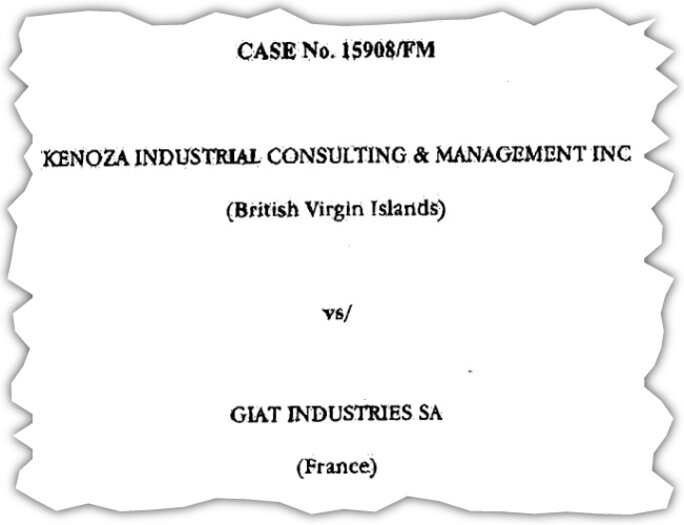
Enlargement : Illustration 3

By March 2000 Al Youself and his company had received only 195 million dollars of the 234 million dollars he had been promised and he eventually took GIAT to the court to get the outstanding 40 million dollars which they were refusing to pay.
GIAT were quite candid at the arbitration court in Paris. Acknowledging that the level of the payments to him were “totally out of proportion with any of the services which [Al Yousef] may have provided” the French company claimed that its middleman committed acts of “corruption”, according to the terms of the final arbitration court agreement in September 30th, 2010. Even more candidly GIAT insisted that Kenoza, Al Yousef's offshore company, “intended to commit and indeed committed corruption acts” in relation to UAE civil servants.
These are unprecedented claims. Al Yousef himself strongly denied to the court that the “purpose” of the commission deal was to “make corrupting payments to UAE civil servants or that [the company] made such payments”.
The time when corruption was legal
No names were given of any officials who were bribed. But the case did reveal the corruption trail. GIAT explained to the court that the 200 million dollars of black money had been paid into accounts opened in Lichtenstein and Gibraltar, two other tax havens.
To justify its refusal to pay the rest it owed to the middleman, GIAT cited the law. More specifically it referred to the fact that in June 2000 the Organisation for Economic Co-operation and Development (OECD) anti-bribery convention ratified by France had become part of French criminal law. Indeed up to that point, no matter how immoral they might be, hidden commissions – bribes – in arms deals had been legal. They were in fact tax deductible and defence firms regularly made use of this arrangement.
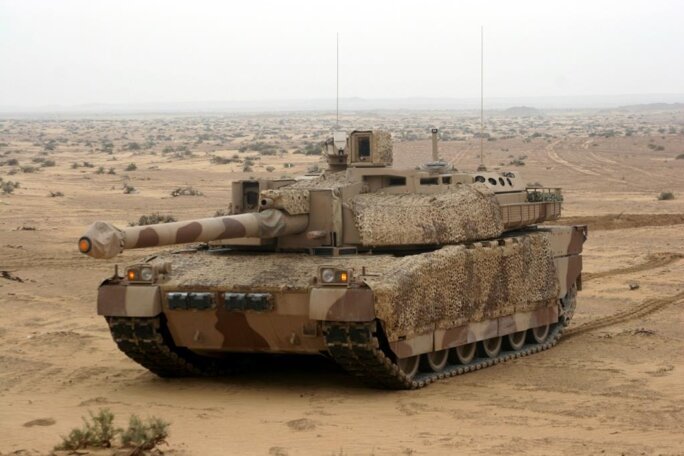
Enlargement : Illustration 4

So at the arbitration court GIAT argued that its contract with Abbas Al Yousef was “unenforceable” from June 2000 because of its “illicit cause”, now that such bribery was illegal in French criminal law.
When contacted the arms company – now Nester – declined to comment on the case. “It is not possible for us to reply to you because we are not in a position to have certain pieces of information and/or the issues are covered by different confidentiality clauses,” said a spokesperson for the group.
Abbas Al Yousef, who did not respond to requests for a comment, insisted during the case that his role for GIAT was “essential to secure the award of the UAE contract” and denied any claims of corruption. However, he did not provide any details of his work as he said he had destroyed his notes in order to “protect GIAT's confidentiality” and to avoid leaks to competitors. At the time Germany, Brazil and the United States had been competing for the tank contract.
“Yousef Al Yousef was in reality worried by the accusations of corruption,” recalls someone who took part in the arbitration procedure, and who spoken to Mediapart on condition of anonymity. “That's why he appeared very reserved during the hearings, at the risk of losing all credibility before the arbiters.”
In the end the three arbiters or tribunal judges - lawyers David Sutton and Michael E. Schneider and law professor Ibrahim Fadlallah – found against Abbas Al Yousef, who as a result will not receive the extra 40 million dollars. The arbitration judges considered that the 200 million dollars already received by the middleman fully covered the work he had done, work which he incidentally had great difficulty in proving he had carried out.
Five years after this secret judgement – arbitration courts are essentially used because of their confidentiality – the tanks at the heart of the corruption deal were deployed in the dirty war in Yemen. According to the non-commissioned officer Guillaume Paris, instructor at the École de Cavalerie military training college and a specialist in missiles, between 70 to 80 of the French tanks sold to the UAE have been used in combat. “It's the first combat deployment of the main French battle tank by a foreign army,” he says.
In March 2016 the president of Nexter (the former GIAT), Stéphane Mayer, a major figure in the French arms industry, insisted at France's National Assembly: “Concerning the Leclerc tanks, I can confirm to you that their involvement in Yemen has greatly impressed the military in the region.” It should also be pointed out that along with Saudi Arabia's military, the UAE army is the force most frequently singled out by the UN and by NGOs for carrying out possible war crimes and breaches of international law committed on Yemeni soil. France's Foreign Ministry has kept silent on the issue for several months.
One reason for this is perhaps the fact that the UAE has for several years been one of the largest buyers of arms from the French defence industry. In 2014 such orders were worth 937 million euros.
According to a joint report by the International Federation for Human Rights (FIDH), the Ligue des Droits de l'Homme (LDH) and the Armaments Observatory, published earlier this year, France delivered many weapons and arms to Saudi Arabia and the UAE between 2015 and 2017, on top of the Leclerc tanks. These included light-armoured vehicles from Nexter and Renault Trucks Defense, transport helicopters from Airbus, surveillance drones from Sagem, patrol boats from Couach, plus nearly 30 missiles and hundreds of sniper rifles.
This information raises a key question for French organisations today; how can one control armies sales to countries that are suspected of not respecting the international rules? At the beginning of April this year Sébastien Nadot, Member of Parliament for the ruling La République en Marche party, supported by around 60 other Parliamentarians, tabled a proposal to set up a commission of inquiry on the issue. “Since the start of the war in Yemen in 2015, France has regularly granted arms sale licences to French companies who have afterwards helped belligerents in the conflict,” states the text put forward by the MP.
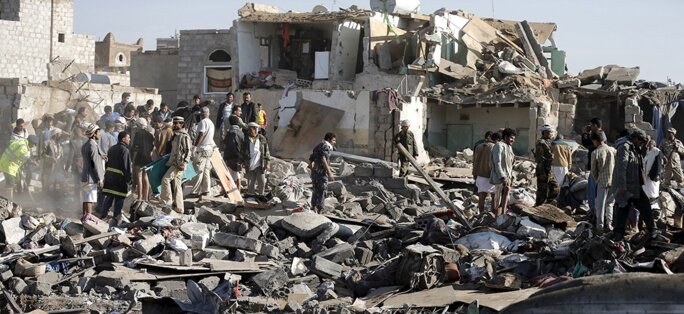
Enlargement : Illustration 5

The president of the National Assembly's foreign affairs committee, Marielle de Sarnez from the centrist MoDem party, is herself calling for a fact-finding mission on arms sales controls and potentially in the longer term a permanent Parliamentary group dedicated to the issue.
“It's true that we are far behind in France,” the MP told Mediapart. “If you take other Parliaments, in England and Italy for example, there is a greater control of arms sales than we have here in France even if, I accept, we have made some small progress in recent years. I'm not even talking about the American Congress which has absolute power over arms sales, which incidentally doesn't stop the Americans selling a lot of arms,” she adds.
A spokesperson for Nexter – formerly GIAT – told Mediapart that the “use of the equipment is the responsibility of the sovereign states who use it”. The company says it abides by the “rules on export controls” and respects “business ethics”.
-------------------------------------------------------------------------
If you have information of public interest you would like to pass on to Mediapart for investigation you can contact us at this email address: enquete@mediapart.fr. If you wish to send us documents for our scrutiny via our highly secure platform please go to https://www.frenchleaks.fr/ which is presented in both English and French.
----------------------------------------------------------------------
- The French version of this article can be found here.
English version by Michael Streeter


